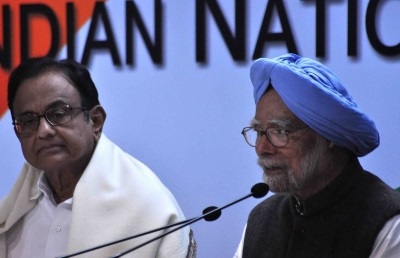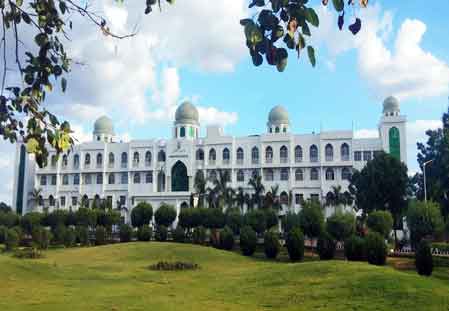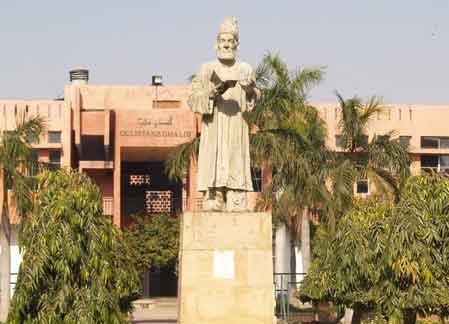The BJP-led National Democratic Alliance (NDA) government on Thursday presented a White Paper on Indian Economy to draw a comparison between the 10 years of Congress-led UPA regime and 10 years of post-2014 rule.
The document contains ‘damning’ details of economic 'mismanagement' and 'blunders' under the UPA regime.
The White Paper, in its very first paragraph, ‘indicts’ the UPA government of many shortcomings and failures in terms of economy and governance.
The White Paper is set to witness heated debate in the House as the Opposition will not take it ‘lying down’ and will seek to confront the government. The Finance Minister is expected to reply to the debate on Friday and further blast the UPA regime over its ‘fiscal mismanagement’.
“The economy was in a fragile state; public finances were in bad shape; there was economic mismanagement and financial indiscipline, and there was widespread corruption. It was a crisis situation,” read the White Paper.
Highlights of Modi government's ‘White Paper’:
* UPA government inherited a healthy economy ready for more reforms, but made it non-performing in its 10 years
* UPA leadership, which seldom fails to take credit for the 1991 reforms, abandoned them after coming to power in 2004
* UPA government, in its quest to maintain high economic growth by any means after the global financial crisis of 2008, severely undermined the macroeconomic foundations
* One such foundation that was severely weakened by the UPA government was price stability
* The banking crisis was one of the most important and infamous legacies of the UPA government
* The banking crisis in 2014 was massive, and the absolute sum at stake was too large
* In an era where capital flows dominate, India’s external vulnerability shot up because of over-dependence on external commercial borrowings (ECB)
* The famous Foreign Currency Non-Resident [FCNR(B)] deposit window for NRIs was actually a call for help when there was a large depletion of the foreign exchange reserves
* UPA government's response to the 2008 global financial crisis -- a fiscal stimulus package to combat the spill-over effects -- was much worse than the problem it sought to address
* Under the UPA government, public finances were brought to a perilous state
* Run-away fiscal deficits led the economy to the fiscal precipice
* As a result of its fiscal mismanagement, the UPA government's fiscal deficit ended up being far higher than it had expected, and it subsequently ended up borrowing 27 per cent more from the market than what it had budgeted for in 2011-12
* The fiscal deficit burden became too big to bear for the economy.
* In the pretext of responding to the impact of the global financial and economic crisis (while arguing, at the same time, that India was not affected by the crisis), the UPA government expanded its borrowing and did not relent at all.
* Not only did the UPA government borrow heavily from the market, the funds raised were also applied unproductively
* The conspicuous neglect of infrastructure creation and challenges of the logistical constraints caused industrial and economic growth to stumble
* The Reserve Bank's reports also pointed towards excessive revenue expenditure by the UPA government
* Poor policy planning and execution also resulted in large unspent funds for many social sector schemes during the UPA years
* Health expenditure remained a pain point for Indian households under the UPA government
* The government's prioritisation of unproductive spending meant that significant funds were allocated towards consumption rather than productive investment
* Such was the lack of consideration for long-term national development that even the critical issue of defence preparedness was hampered by policy paralysis
* UPA government's decade of governance (or its absence) was marked by policy misadventures and scams
* UPA government will always be remembered for the largest power outage in our history, in July 2012, leaving 62 crore people in darkness and putting national security at risk
* The electricity shortages under the UPA government were also repeatedly pointed out by international agencies
* India's telecom sector lost a precious decade due to the 2G scam and policy paralysis
* In the UPA government, decision-making came to a standstill due to corruption and scandals in defence, compromising defence preparedness






Maulana Azad National Urdu University cancels MoU with Turkish institute
Maulana Azad National Urdu University (MANUU) has announced the cancellation of its academic Memorandum of Understanding (MoU) with Yunus Emre Institute of Turkey in the wake of Turkey's support to Pakistan in the recent Indo-Pak conflict following the terror attack at Pahalgam.
After JNU, Jamia suspends MoUs with institutions in Turkey over support to Pakistan
Several prominent Indian universities have suspended their academic Memorandums of Understanding (MoUs) with institutions in Turkey, citing national security concerns.
India revokes security clearance of Turkey’s Celebi Airport Services
The government on Thursday revoked the security clearance for Turkish ground-handling firm Celebi Airport Services at the Indian airports, as calls grew to ban Turkish businesses in the wake of their country supporting Pakistan which harbours terrorism.
Indus Treaty on hold until Pakistan 'credibly and irrevocably' abjures support for cross-border terrorism
External Affairs Minister (EAM) S. Jaishankar on Thursday made it clear that the Indus Waters Treaty (IWT) will remain suspended until Pakistan stops sheltering internationally designated terrorist entities and individuals who are also engaged in cross-border terrorism against India.
Our relations, our dealings with Pakistan will be strictly bilateral: EAM Jaishankar
Making India's longstanding position clear once again, External Affairs Minister (EAM) S. Jaishankar on Thursday said that any issues pertaining to Pakistan will be dealt with Islamabad bilaterally.
Three Jaish terrorists killed in J&K encounter
Three terrorists of the Jaish-e-Mohammad (JeM) were killed on Thursday in a gunfight with the security forces in Nader village of Jammu and Kashmir's Pulwama district.
Assam Rifles kill 10 militants in fierce gunbattle in Manipur; operation underway
In a major counter-insurgency operation, at least 10 militants were killed during a fierce encounter with the Assam Rifles in Manipur's Chandel district, as security forces continue their intensified crackdown on insurgent groups across the state.
Top BSF official emphasises need for heightened vigilance on Indo-B’desh border
A Border Security Force (BSF) spokesman said that Agrawal, a senior IPS officer, underlined the maximum vigil along the India-Bangladesh border to ensure a prompt and effective response to any adverse situation.